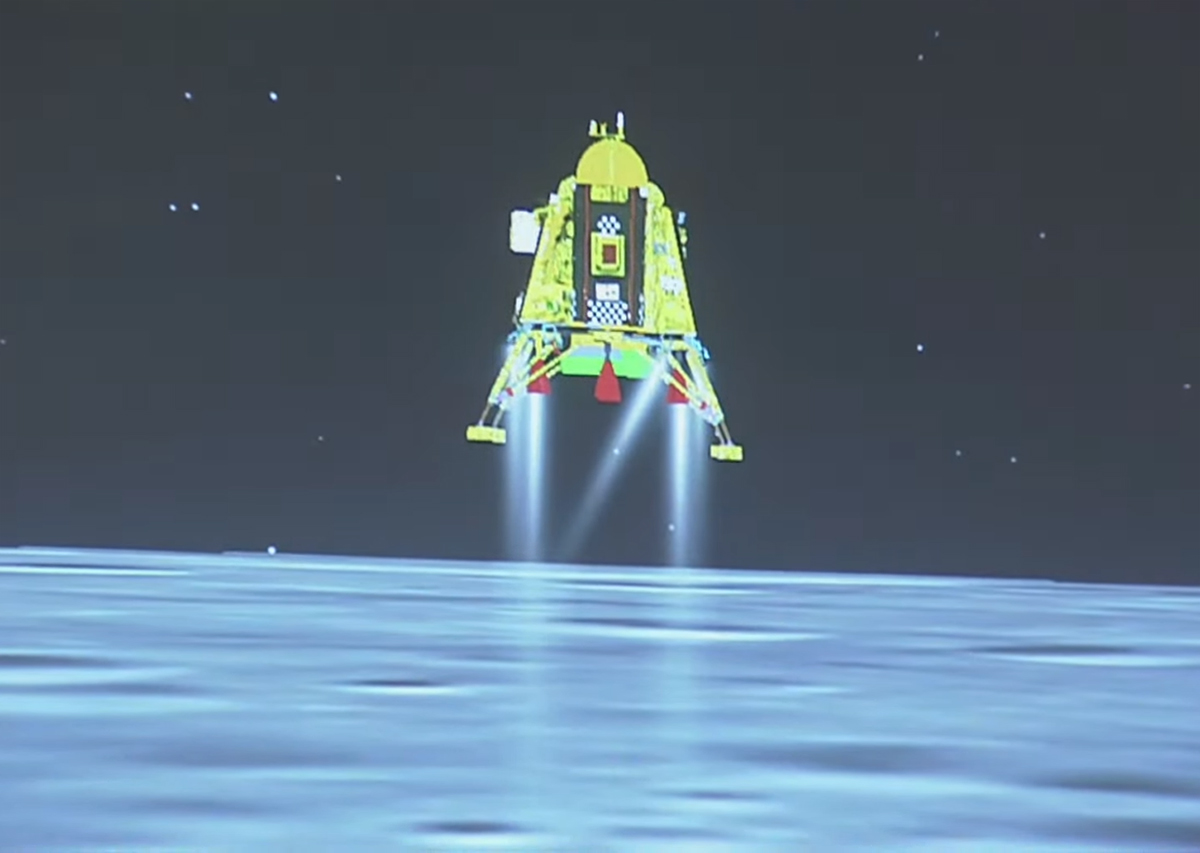All progress in space should excite us and encourage us to be optimists about a better future for our planet and all of us, asserts Aakar Patel.

The last astronauts landed on the moon 50 years ago. The last names of those Americans were Cernan, Evans and Schmitt.
These are not as familiar to us as the name Armstrong. The fact is that after the first landing happened in 1969, the space race was deemed to be over.
It is very expensive to run space programmes, and after boredom from the public the programmes of the Americans and the Russians declined in intensity and capacity and ambition after 1969.
A plan to send humans to Mars was drawn up immediately after Armstrong's success, but it was never executed.
The man who made the plan, Von Braun, a Nazi rocket scientist captured by the Americans and brought to the US to head their space programme, was put to pasture and the Apollo missions to the moon were over.
The giant rocket that took Americans there, the Saturn 5, was scrapped.
The space shuttle was a more modest, partly reusable vehicle that took astronauts into lower earth orbit. It was functional for 30 years from 1981 to 2011.
For a decade after that, America did not have the capacity to launch its own astronauts to the International Space Station (which orbits the earth at a few hundreds kilometres) till a private company called SpaceX achieved this capacity during Covid.
Till then, for a decade, NASA and European astronauts flew on Russian rockets.
The two most active space programmes in the world today are run by this company and the Chinese. SpaceX had 61 launches in 2022. China had roughly the same.
In comparison, India meaning ISRO in 2022 had four successful launches, three PSLVs and one GSLV, which is now renamed LVM.
This number should not discourage us because our budget is far lower, though in ambition India's programme matches the rest.
After the phenomenal success of India's moon mission, the next step is to put a human in orbit.
This was achieved by India in the 1980s, but on a Soviet rocket.
The astronaut, Rakesh Sharma, remains the only Indian citizen to orbit the earth, and that was 40 years ago in April 1984.
If all goes well, India hopes to send a spaceship called Ganganyaan with Indians to orbit sometime in the next two years or so.
India already has achieved the most difficult aspect of this, which is to safely send a rocket to orbit, and it has proven that it has the capacity to do this several times over since the first orbital launch some 40 years ago.
Recently we have seen that India has also mastered propulsive landing.
Meaning the ability to set a spaceship down using its own power, after slowing down from orbital velocity and through a controlled descent.
When we achieve human spaceflight, we will be only the fifth nation or entity to achieve this, after the Russians, Americans, Chinese and SpaceX.
It is very likely that we will get there and then we will push for more. What will that more be?
The ultimate aim of space programmes is not national glory, because at some point, the first to do this or that will be behind us.
Much of it already has been achieved. The first person to orbit, first person to spacewalk, to land on the moon, all of that happened 50 years ago.
There are people who have spent a year in orbit on the space station.
The only 'first' to be achieved in the next couple of decades is to land humans on Mars and perhaps to set up a permanent base there.
And so being first is not the ultimate goal, which is to further human civilisation.
If and when a spaceship from our planet leaves the solar system and enters another, it will be a messenger not from a nation but from a planet.
The International Space Station recognises this.
It is a joint effort by the US, Japan, Russia, Canada and European Union.
Note that through all the hostilities in Ukraine, with the EU and America arming them against Russia, the joint space programme continues.
It does so because achievements and progress in space is about more than nations.
China is not a member of the ISS community, but it has built its own space station and is expanding it every year.
Science generally speaking, and space in particular, tends to make us come together as a race and as a planet.
They say that all astronauts who have orbited the earth are permanently transformed.
They see our planet in a way that the rest of us cannot.
Their eyes see how thin the blue atmosphere is, and how vulnerable it is.
They see the physical form of earth from above without its artificial borders and without races, as a unified whole.
This is why all progress in space should excite us and encourage us to be optimists about a better future for our planet and all of us.
Aakar Patel is a columnist and writer and you can read Aakar's earlier columns here.
Feature Presentation: Aslam Hunani/Rediff.com











 © 2025
© 2025